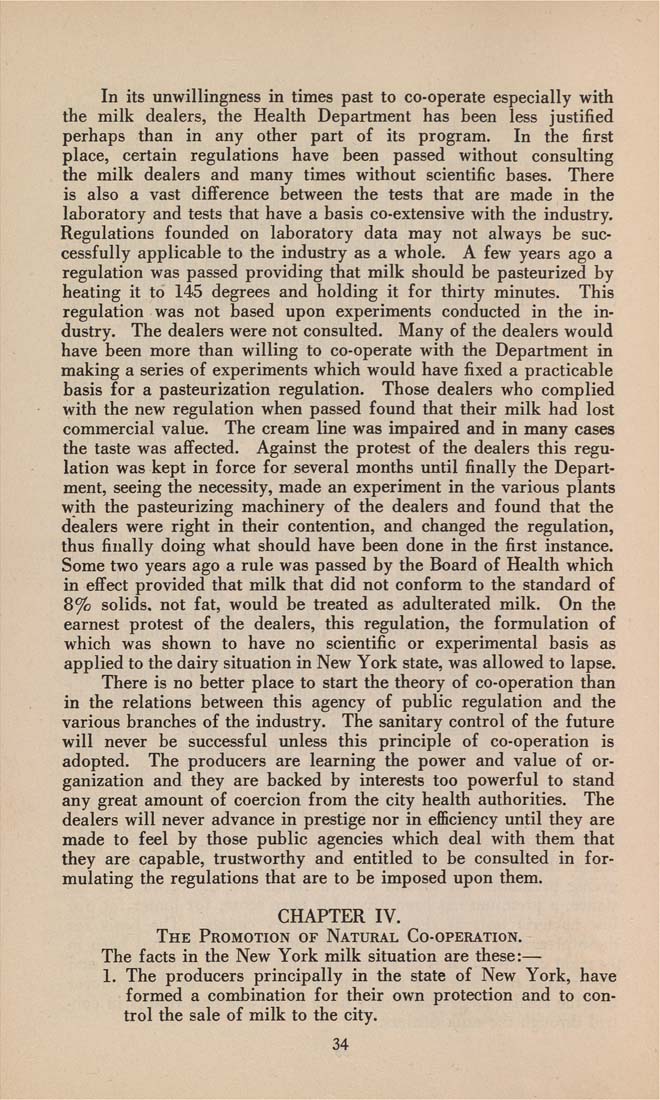In its unwillingness in times past to co-operate especially with
the milk dealers, the Health Department has been less justified
perhaps than in any other part of its program. In the first
place, certain regulations have been passed without consulting
the milk dealers and many times without scientific bases. There
is also a vast difference between the tests that are made in the
laboratory and tests that have a basis co-extensive with the industry.
Regulations founded on laboratory data may not always be suc¬
cessfully applicable to the industry as a whole. A few years ago a
regulation was passed providing that milk should be pasteurized by
heating it to 145 degrees and holding it for thirty minutes. This
regulation was not based upon experiments conducted in the in¬
dustry. The dealers were not consulted. Many of the dealers would
have been more than willing to co-operate with the Department in
making a series of experiments which would have fixed a practicable
basis for a pasteurization regulation. Those dealers who complied
with the new regulation when passed found that their milk had lost
commercial value. The cream line was impaired and in many cases
the taste was affected. Against the protest of the dealers this regu¬
lation was kept in force for several months until finally the Depart¬
ment, seeing the necessity, made an experiment in the various plants
with the pasteurizing machinery of the dealers and found that the
dealers were right in their contention, and changed the regulation,
thus filially doing what should have been done in the first instance.
Some two years ago a rule was passed by the Board of Health which
in effect provided that milk that did not conform to the standard of
8% solids, not fat, would be treated as adulterated milk. On the
earnest protest of the dealers, this regulation, the formulation of
which was shown to have no scientific or experimental basis as
applied to the dairy situation in New York state, was allowed to lapse.
There is no better place to start the theory of co-operation than
in the relations between this agency of public regulation and the
various branches of the industry. The sanitary control of the future
will never be successful unless this principle of co-operation is
adopted. The producers are learning the power and value of or¬
ganization and they are backed by interests too powerful to stand
any great amount of coercion from the city health authorities. The
dealers will never advance in prestige nor in efficiency until they are
made to feel by those public agencies which deal with them that
they are capable, trustworthy and entitled to be consulted in for¬
mulating the regulations that are to be imposed upon them.
CHAPTER IV.
The Promotion of Natural Co-operation.
The facts in the New York milk situation are these:—
1. The producers principally in the state of New York, have
formed a combination for their own protection and to con¬
trol the sale of milk to the city.
34
|








